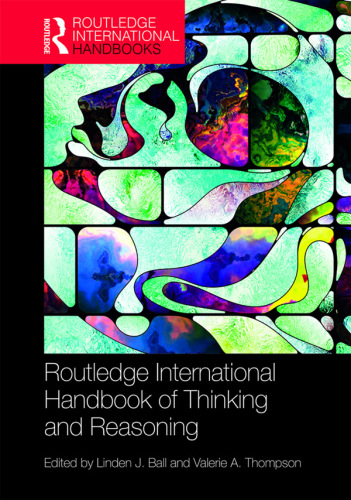

Most ebook files are in PDF format, so you can easily read them using various software such as Foxit Reader or directly on the Google Chrome browser.
Some ebook files are released by publishers in other formats such as .awz, .mobi, .epub, .fb2, etc. You may need to install specific software to read these formats on mobile/PC, such as Calibre.
Please read the tutorial at this link: https://ebookbell.com/faq
We offer FREE conversion to the popular formats you request; however, this may take some time. Therefore, right after payment, please email us, and we will try to provide the service as quickly as possible.
For some exceptional file formats or broken links (if any), please refrain from opening any disputes. Instead, email us first, and we will try to assist within a maximum of 6 hours.
EbookBell Team

4.3
8 reviewsTopics covered range across all sub-areas of thinking and reasoning, including deduction, induction, abduction, judgment, decision making, argumentation, problem solving, expertise, creativity and rationality. The contributors engage with cutting-edge debates such as the status of dual-process theories of thinking, the role of unconscious, intuitive, emotional and metacognitive processes in thinking, and the importance of probabilistic conceptualisations of thinking and reasoning. Authors also examine the importance of neuroscientific findings in informing theoretical developments, and explore the situated nature of thinking and reasoning across a range of real-world contexts such as mathematics, medicine and science.
The Handbook provides a clear sense of the way in which contemporary ideas are challenging traditional viewpoints as "new paradigm of the psychology of reasoning" emerges. This paradigm-shifting research is paving the way toward a richer and more inclusive understanding of thinking and reasoning, where important new questions drive a forward-looking research agenda.